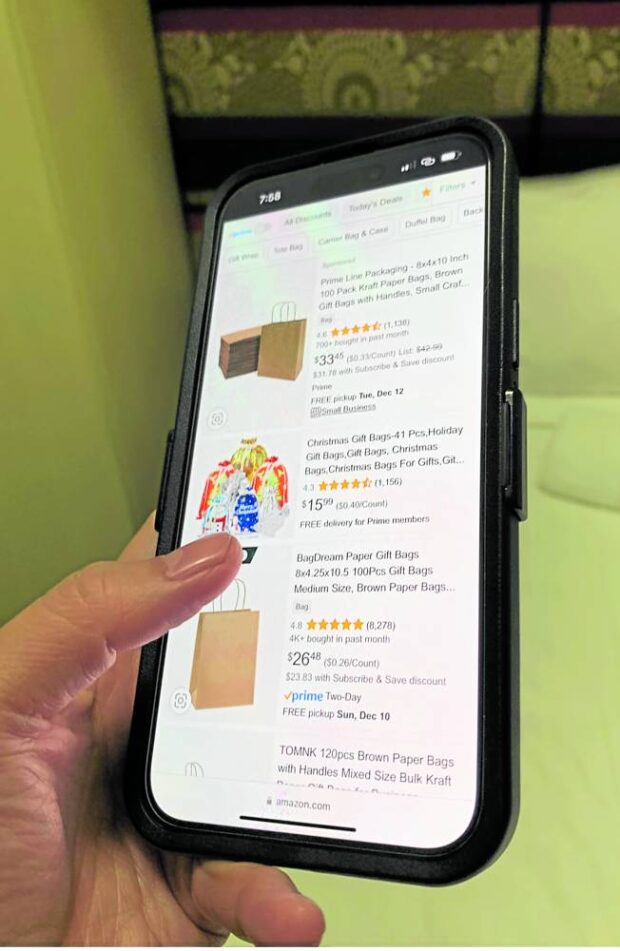Shopping online this Christmas? Here’s how to avoid the Grinch
As shoppers swarm the online marketplaces this Christmas, hackers are ready to spoil their holidays just like the Grinch. And yes, these hackers are also ready to steal from jolly shoppers who just want to buy gifts for their family and friends. The bad actors do not necessarily want these shoppers’ Christmas gifts, but they definitely fancy something valuable as well: personal data.
This is not new. The digital public has always been warned against the proliferation of phishing, which tricks users into providing sensitive details. But the holidays are a great opportunity for hackers to ramp up their attacks as more people will be on e-commerce platforms. Buyers are reminded to be extra cautious.
While there are risks, online shoppers can protect themselves from these Grinches. Information technology and security company Sophos has a list for the users to remember as they add to cart items of their choice.
Use tech more wisely
To stay ahead of the perpetrators, a lot of tools are available for shoppers to use, including ad blocker that can remove advertising on a webpage. User behavior on digital spaces, like interests based on content consumption, can be tracked. Such data help advertisers seed relevant content to users.
At the same time, however, it can also be a “a major source of malicious links and deceptive content on the internet.” An ad blocker can make browsing “safer” and “faster” as it will use less bandwidth with the elimination of pop-up ads.
“To prevent your shopping habits and interests from following you around from site to site, you should enable private browsing or incognito mode,” Sophos says.
Private surfing allows users to make internet searches without leaving crumbs for hackers to exploit. Experts have warned against perpetrators studying the digital footprint of users, mining information for targeted cyberattacks.
“This (incognito mode) will block tracking cookies and help the internet forget your travels as the waves wash away your footprints in the sand,” Sophos explains. Digital hygiene
Apart from technology, users also have to play a part in protecting themselves from the hackers. Sophos advises the public not to use one account on several services. It may seem convenient but there can be a bigger price to pay if hackers obtain the account details.
“When logging into an e-commerce site, it is often tempting to use the ‘Sign in with Facebook’ or ‘Sign in with Google’ button,” it notes. “While it takes a few more minutes to create a new login, it will provide more privacy as you are not sharing all of the sites you shop at with these tech giants.”
If the e-commerce platform does not require shoppers’ personal account, using the guest login can be the safest bet, Sophos says. For one, shoppers will not need to save personal information on the platform.
“This is a great option if you don’t expect to need technical support or to do business on a recurring basis. [That means] fewer passwords, fewer personal details, fewer problems if they get hacked,” it explains.
It is also ideal to not save bank card details on the e-commerce platform, Sophos says, even though it will be more convenient. After all, shoppers will not need to retype the card details every time they make a purchase. It can be tiresome after so many purchases.
“They (online marketplaces) can’t lose what they don’t have, so tell them not to store your credit card unless it is absolutely necessary,” Sophos explains.
Always be alert
Sophos also warns against fake online stores luring shoppers into providing their personal information and bank account details.
“It’s safest to shop at established sites or those personally recommended to you by friends and family. Many unsolicited messages lead to data collection or theft,” the company stresses.
Lastly, the tech firm reminds users to avoid clicking on suspicious emails embedded with too-good-to-be-true sales pitches. These are just baiting unsuspecting individuals into clicking bogus links leading to malicious websites. INQ

